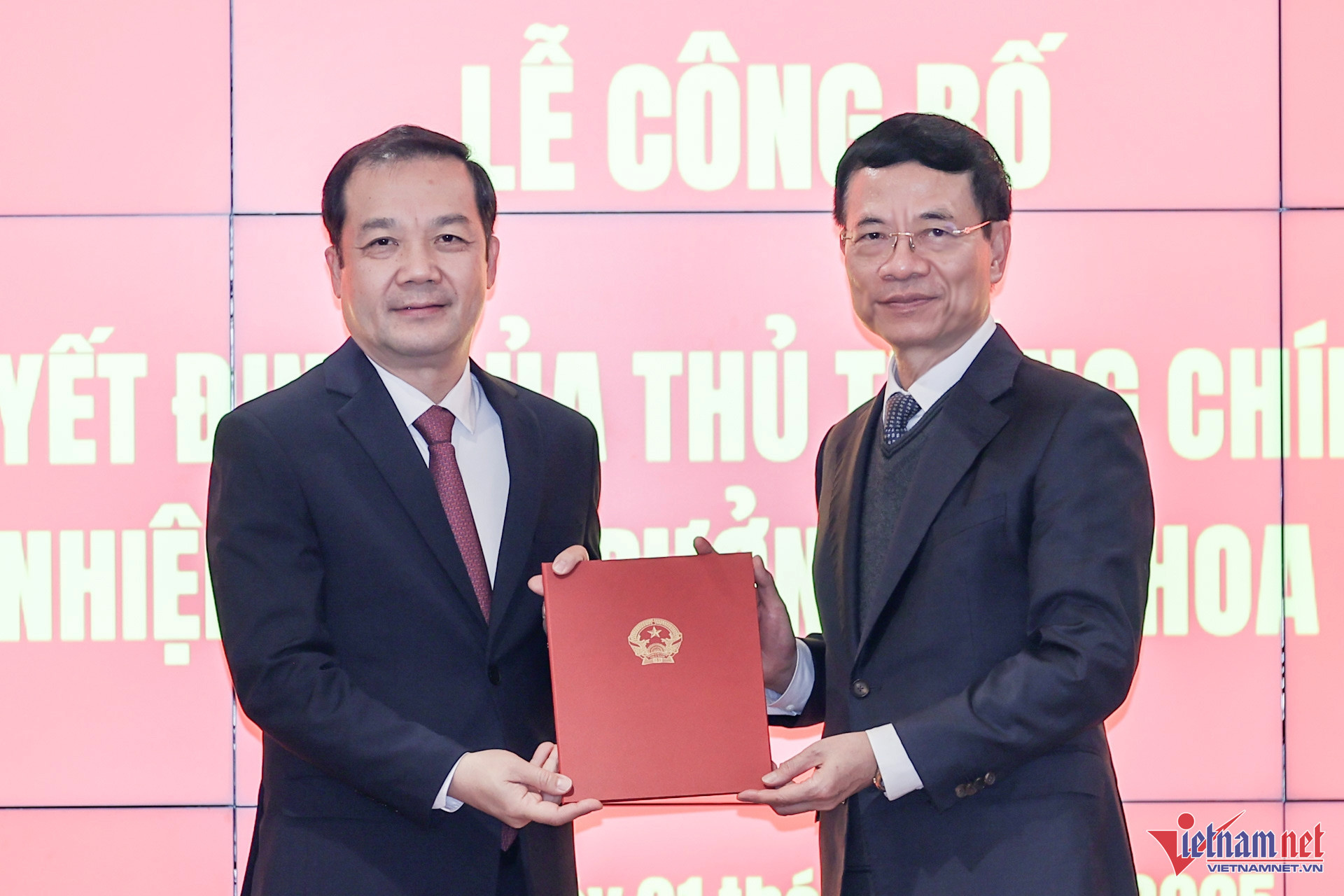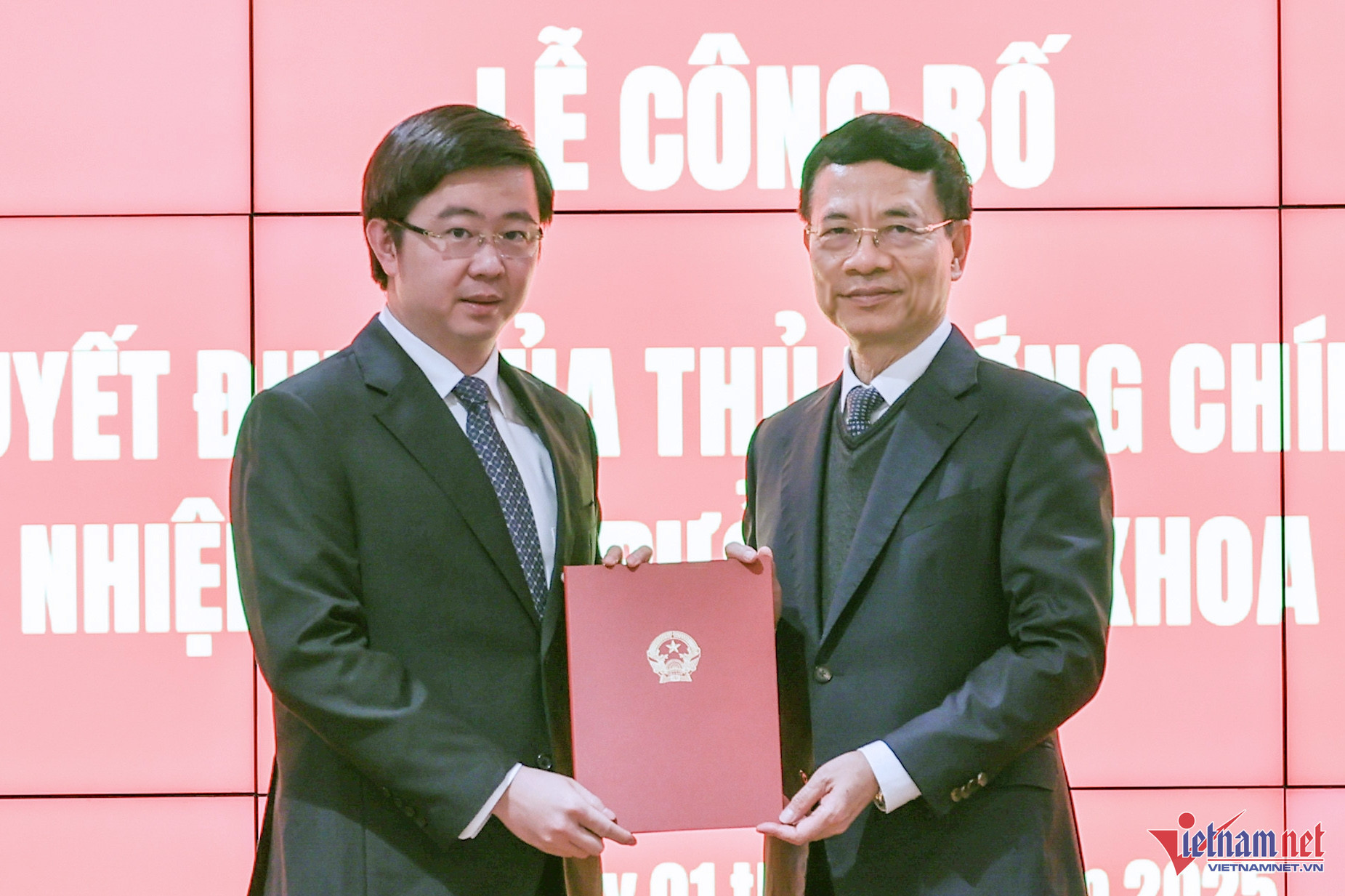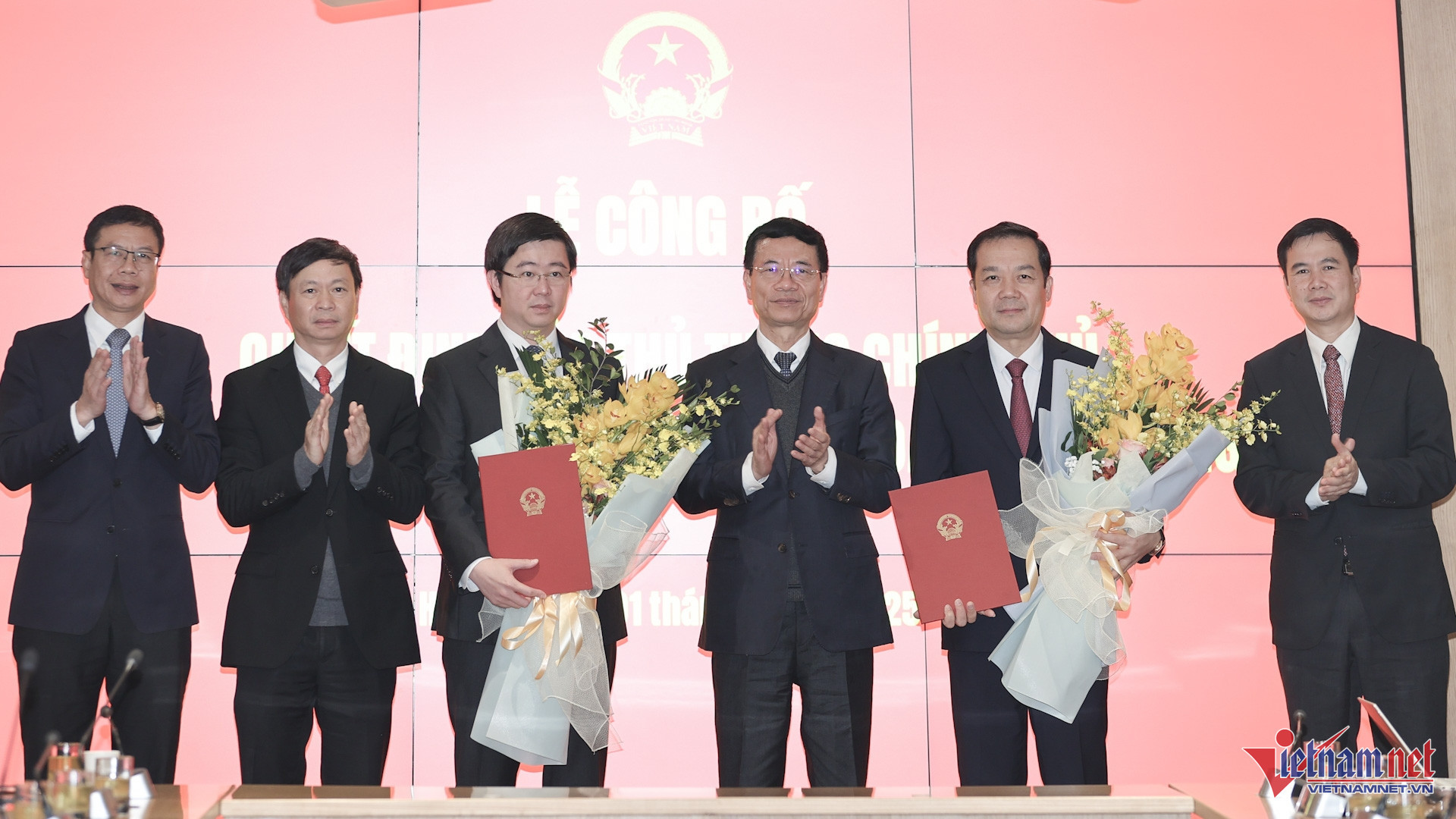On March 1 in Hanoi, Minister of Science and Technology Nguyen Manh Hung chaired a ceremony announcing the Prime Minister’s decision to appoint Pham Duc Long and Bui Hoang Phuong as deputy ministers of the newly consolidated Ministry of Science and Technology (MOST).
The event was attended by existing Deputy Ministers Bui The Duy, Le Xuan Dinh, and Hoang Minh, along with representatives from central government bodies and senior leaders of the ministry’s departments and agencies.
According to Decisions No. 318 and 366, signed on February 19, the Prime Minister officially transferred and appointed Pham Duc Long and Bui Hoang Phuong from the Ministry of Information and Communications (MIC) to their new roles at MOST for a five-year term.
The decision took effect on March 1, coinciding with the official operation of the newly merged ministry, which brings together the former MIC and MOST.
Minister Nguyen Manh Hung emphasized that the appointments of the two deputy ministers mark an important milestone in the development of the ministry.
He noted that the consolidation of the two ministries signifies a major step toward streamlining administrative structures while enhancing efficiency and effectiveness in driving scientific and technological progress.
Background and expertise of the newly appointed deputy ministers

Minister of Science and Technology Nguyen Manh Hung hands over the decision on reassignment and appointment to Deputy Minister Pham Duc Long. Photo: Le Anh Dung
Deputy Minister Pham Duc Long has built a distinguished career in the telecommunications and electronics sector, rising from a technical staff member to the chairman of a major corporation before joining the leadership team at MIC. His strategic vision and commitment to innovation have played a crucial role in transitioning Vietnam’s telecommunications infrastructure toward digitalization, laying the foundation for the country’s digital economy and smart society.
Meanwhile, Deputy Minister Bui Hoang Phuong, a young and dynamic leader with a strong background in information technology and digital transformation, has held various key positions at MIC. Throughout his career, he has demonstrated resilience and excellence in tackling challenges across multiple roles. With his expertise and hands-on experience, he is regarded as a promising leader capable of contributing significantly to the advancement of Vietnam’s science and technology sector.
With the latest appointments, the Ministry of Science and Technology’s leadership team now consists of five deputy ministers: Bui The Duy, Le Xuan Dinh, Hoang Minh, Pham Duc Long, and Bui Hoang Phuong.

Minister of Science and Technology Nguyen Manh Hung hands over the decision to Deputy Minister Bui Hoang Phuong. Photo: Le Anh Dung
MOST: The driving force behind Vietnam’s technological and scientific progress
Minister Nguyen Manh Hung highlighted the strategic role of MOST in realizing Resolution 57, which underscores the importance of science, technology, innovation, and digital transformation as the key pillars of Vietnam’s national development. He stressed that the newly structured ministry is expected to lead the country’s efforts in research, technological application, and policy innovation.
"The integration of the Ministry of Information and Communications and the Ministry of Science and Technology is not merely a structural merger; it is a fusion of expertise, methodologies, and a shared commitment to innovation," Minister Hung stated. He emphasized that this restructuring creates synergies that will accelerate Vietnam’s transition into a high-income, technology-driven economy.
Given the increasing demands and expectations placed upon the ministry, the minister urged all leaders—especially the newly appointed deputy ministers—to demonstrate dedication and excellence in their roles. He emphasized the importance of fostering a culture of research-driven policy, technological breakthroughs, and international collaboration to enhance Vietnam’s competitiveness in the global science and technology landscape.

From March 1, the assisting apparatus for Minister of Science and Technology Nguyen Manh Hung includes five deputy ministers. Photo: Le Anh Dung
Deputy Minister Pham Duc Long outlined his three key priorities moving forward:
Strengthening internal organization and personnel to ensure effective collaboration within the ministry.
Integrating science, technology, innovation, and digital transformation to create a unified ecosystem that accelerates national development.
Refining regulatory frameworks to remove barriers and facilitate faster policy implementation, fostering an environment that supports risk-managed innovation.
Similarly, Deputy Minister Bui Hoang Phuong pledged to work closely with the leadership team and staff, embracing a forward-thinking mindset to enhance Vietnam’s position in the global science and technology community. "I will devote my full effort to fostering a culture of innovation, improving operational efficiency, and ensuring that science and technology become the driving forces behind Vietnam’s sustainable development," he affirmed.
With these new appointments, the Ministry of Science and Technology is poised to take on its expanded responsibilities, serving as the backbone of Vietnam’s scientific advancement, technological innovation, and digital transformation agenda.
Van Anh